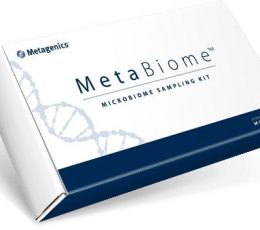10 Clues that a Gut Microbiome Imbalance is behind your Disturbed Digestion
It’s not uncommon for people with dodgy digestion to think that it’s normal. Perhaps it’s normal for you. But when we compare what’s going on for you with healthy digestion and patterns of health, it can help to pinpoint the cause of your digestive problems.

You are probably familiar with the phrase “We are what we eat” but time has shown that this is somewhat simplistic. Not only are we what we eat, we are what we eat, digest, absorb and assimilate! When the digestion isn’t working optimally, all kinds of things can go wrong. The list below outlines the most common indicators that suggest you could benefit from support to get your troubled tummy sorted.
Top SYMPTOMS OF Disturbed DigestioN
- You don’t feel well. When your gut bacteria are out of balance the signals they create can affect your mood, energy and general sense of well being.
- Your bowels are either too frequent, too infrequent or a combination of both. Bacteria have an enormous impact on gut motility. Normally stool should be soft but formed, from 1 to 3 movements daily. While stool form can vary, it should generally fall between Type 3 & 5 on the Bristol Stool Chart, below.
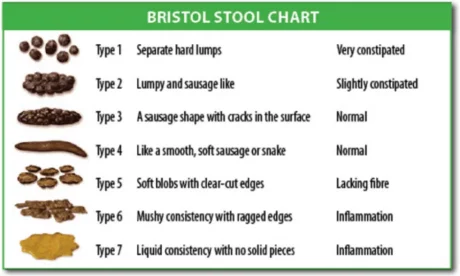
Image from Cabot Health, Bristol Stool Chart / CC BY-SA (https://creativecommons.org/licenses/by-sa/3.0)
3. You get bloated after eating. Having to loosen your trousers or consciously hold in your belly suggests you might have an accumulation of gas in your intestines. That might be uncomfortable too.
4. You burp a lot. Bacterial gases can be responsible for that. Sometimes you might have #5 (below) as well.
5. Reflux is a problem. Maybe you’re taking acid-reducing medication (antacids or omeprazole/losec). Perhaps that helped a little bit, but the problem is still there.
6. You’ve been diagnosed with iron and/or vitamin B12 deficiency. This is especially significant if you are not a vegetarian, as you are expected to NOT have problems with levels of these nutrients if you are not excluding them from your diet.


7. You feel better off without wheat or gluten. Perhaps you like these foods, but they don’t seem to like you! Perhaps you’ve decided that food is not your friend. Some people can pinpoint problem foods (common culprits are beans/legumes, cabbage, onions, some fruits and dairy products).
8. You get brain fog. Bacterial by-products can do this. So-called “Leaky Gut” (also more likely in bacterial overgrowth) can make this worse – particularly after eating some foods (this can vary from person to person, as bacteria have different dietary preferences!)
9. Weight management is an issue. Either you’re underweight and find it hard to gain, or you’re the opposite.
10. Your problems started (or got worse) after getting sick with a bout of gastro – aka a tummy bug or “food poisoning”.
Do You Tick One or More of those Boxes – What Now?
All these symptoms indicate disturbed digestion – which could mean you have Small Intestinal Bacterial Overgrowth (SIBO). You don’t need to have all of the symptoms above, in fact many people just have one or two symptoms. And this list is by no means exhaustive. There are numerous other health issues linked to poor digestion.
Order a SIBO breath test or make an appointment to discuss your digestion today.
It’s as simple as catching your breath!
Digestive Testing Options Available at Auckland Gut TESTING

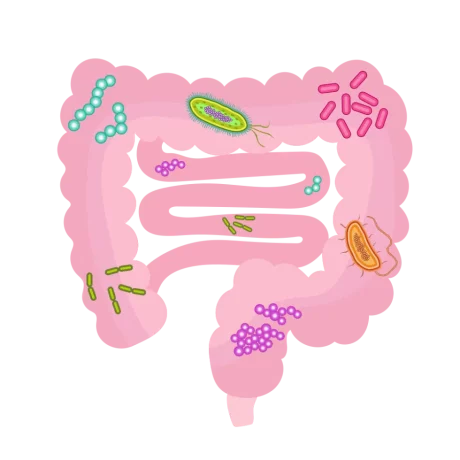
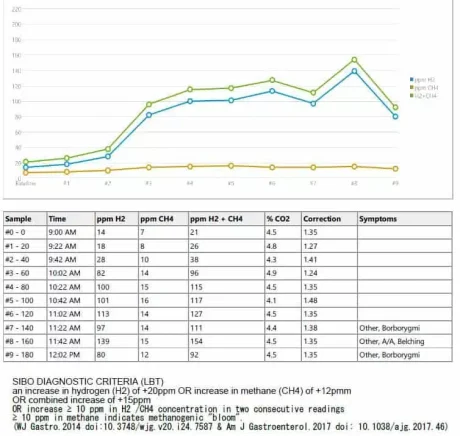
Hydrogen-methane Breath Tests
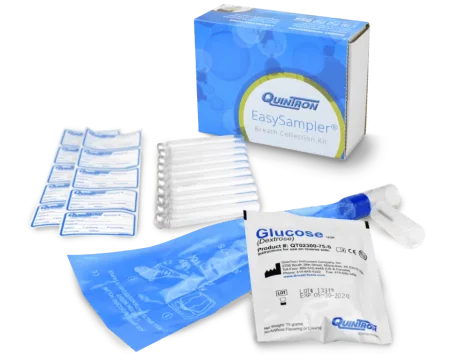
Results of your breath test provides your clinician information regarding the possible role of bacterial gases in your digestive symptoms. Tests can be conducted in the privacy of your home, or in our Auckland testing lab. We can detect problems related to ingestion of lactose, fructose, sucrose, sorbitol and mannitol.
LACTOSE INTOLERANCE TEST
NOTE: Lactulose and Lactose are used to test different things. Please check you are ordering the correct test.
Similar to Lactose Intolerance, we can also test for Fructose Malabsorption.
COMPREHENSIVE MICROBIOME STOOL TESTING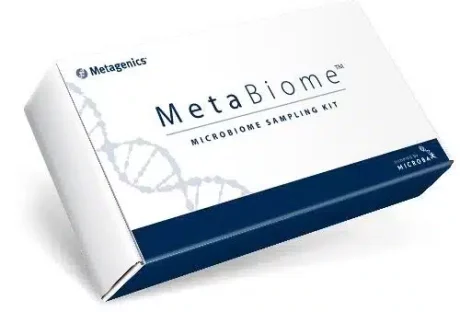
The MetaBiome™ Test is a non-invasive gut microbiome test that is used to sample an individual’s gut microbiome. This includes the bacteria, identified by their genes, as well as other microorganisms, that live in your gut, giving valuable insight into your gut health.This microbiome test kit is not for diagnostic purposes. Powered by Microba
Markers include some that are commonly produced by gut bacteria, and some by yeasts. In excess, these can indicate a microbiome-related problem.
INTESTINAL HYPERPERMEABILITY TEST
Intestinal permeability (leaky gut) can be the link between gut imbalances and systemic illness. This test can provide direction to heal the gut and address your health concerns.
This test is a 6-hour urine collection, done at home.


